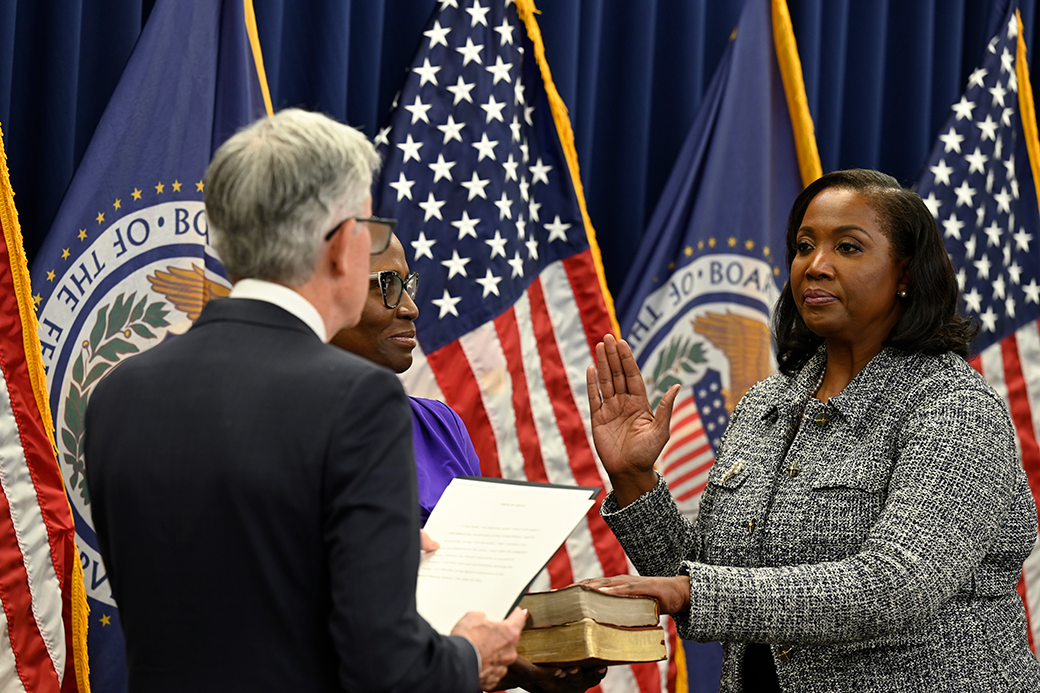Washington — A bipartisan group of senior economic officials — including the three most recent former Federal Reserve chairs — filed a brief with the U.S. Supreme Court this week warning that President Donald Trump’s attempt to remove Federal Reserve Governor Lisa Cook could damage the Fed’s independence and risk a surge in inflation. The signatories argued that allowing the removal to stand while Cook’s legal challenge proceeds would be “premature” and could create long-term harm to U.S. monetary policy.
In the amicus filing, the 18 former officials — a group that includes Janet Yellen, Ben Bernanke and Alan Greenspan as well as several former Treasury secretaries — said that the “balance of equitable factors” weighs heavily in favor of keeping Cook in place while courts resolve whether the president had lawful cause to dismiss her. The brief warned that even the appearance of political interference in Fed governance could erode public confidence and “ultimately lead to greater inflation.”
The legal dispute began in August after the White House moved to remove Cook, who was appointed to the Fed in 2022. The administration’s action was prompted by allegations relating to mortgage applications tied to properties Cook owns — accusations she denies and that so far have not produced criminal charges. A federal district judge issued a preliminary injunction blocking the removal, and an appeals court recently upheld that interim protection, leaving the question for higher courts to decide.
Economists and former policymakers who backed Cook in the brief stressed that the Fed’s credibility depends on its insulation from short-term political pressures. “Any reduction in the Federal Reserve’s well-earned reputation for independence would hamper its ability to influence independent decisionmakers and could ultimately lead to greater inflation,” the brief said, according to Reuters reporting. The signers framed their argument around the institutional risks, not the underlying allegations against Cook.
Market observers say the stakes go beyond one seat. Analysts warn that the precedent of allowing a president to remove a Fed governor without clear, judicially reviewable “for cause” grounds could make future monetary decisions more politicized — a shift that, in turn, could unnerve markets, raise inflation expectations, and force the Fed into less credible policy stances. Bloomberg reported that senior economists who joined the brief pointed to those broad economic consequences when urging the Supreme Court to preserve the status quo.
Cook’s legal team has argued that federal law protects Fed governors from dismissal except for cause, a safeguard Congress intended to preserve central bank independence. The Justice Department and the White House have asked the Supreme Court to lift the injunction and allow the removal to take effect, framing the matter as within the president’s authority. Lower courts so far have sided with Cook at the preliminary stage, leaving the Supreme Court to consider whether immediate removal is lawful while the underlying case proceeds.
Reactions on Capitol Hill and across the financial world underscored the politically fraught nature of the dispute. Some Republican lawmakers applauded the administration’s move as a check on alleged misconduct, while many Democrats and nonpartisan legal scholars warned that permitting a president to oust a Fed governor over disputed claims would set a dangerous precedent. Legal experts note the case raises novel separation-of-powers and statutory interpretation questions that could reshape the limits of executive authority over independent agencies.
If the Supreme Court allows the removal to stand, the amicus brief’s authors argued, the damage would not be limited to immediate political victories or losses. Their worry is structural: a politicized Fed could lose the trust of bond markets and households, increasing the likelihood that inflation expectations become unanchored — a scenario that could force policymakers into harsher interest-rate paths and greater economic pain to restore price stability.
The court has not yet announced when it will rule on the emergency application. For now, Cook remains a governor as litigation continues, and the case has become a focal point in a broader debate over the proper distance between elected officials and the central bank that governs U.S. monetary policy.










